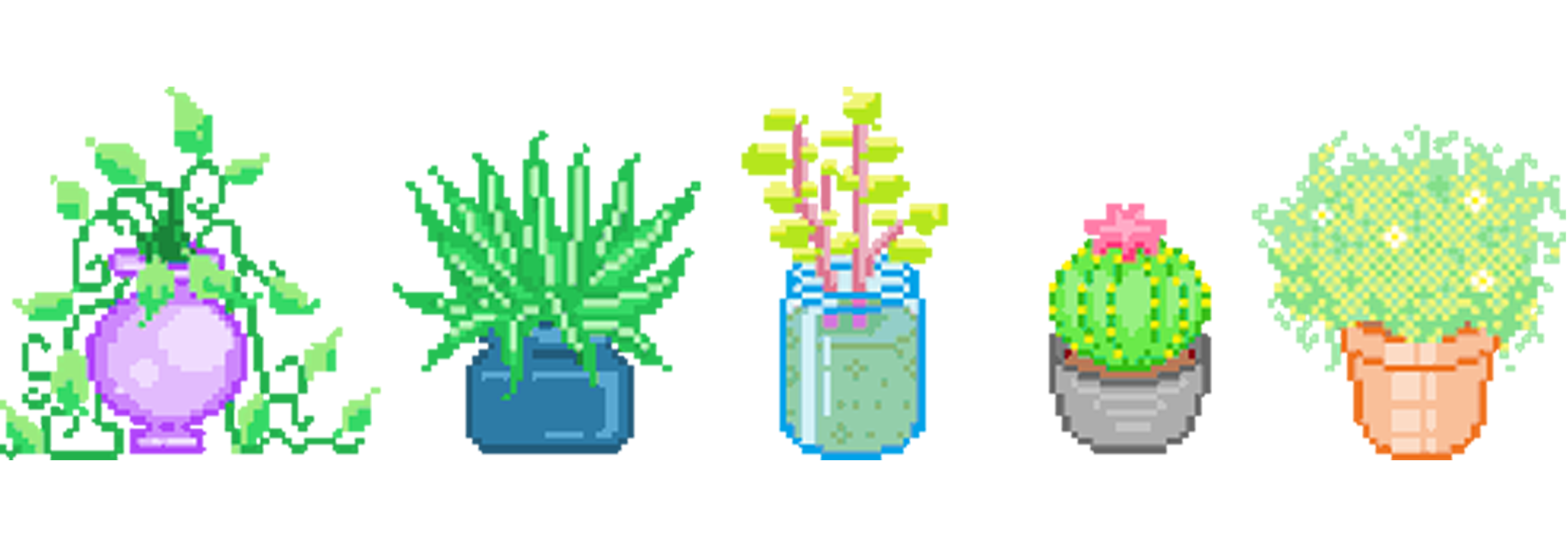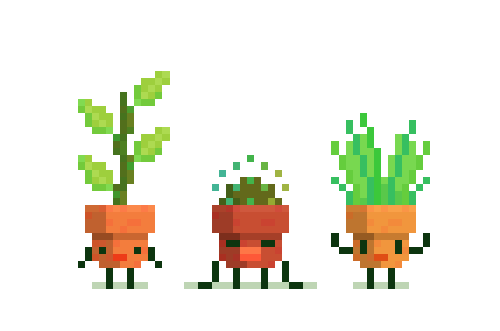I only use self watering pots for plants that don't like to dry out. In fact, the only way I have been able to get ferns to survive is to have them in self watering pots. Currently, I have a maidenhair fern and an alocasia polly plant in self watering pots and they are doing great. Make sure you get self watering pots that have a reservoir and wick; I find that these keep the soil more consistently moist. Absolutely do not put succulents or cactus in self-watering pots.
I’m a big fan of using them for growing stuff semi-hydroponically.
https://www.lecaaddict.com/leca-information/why-grow-in-leca
ooo, I've never used leca before. Is it hard to keep clean? I have some of my pants in water with pebbles and when I replace the water and clean it out, the smooth surface of the pebbles makes cleaning the gunk pretty easy. The rough surface of leca seems like it would be hard to clean.
Lechuza pon! It’s like tiny pebbles you water like soil, rather than leca which is kept in water. I grow 95% of my 100+ plants in lechuza. No gunk, no mess and when used with self watering pots it truly is a dream!
It doesn’t really build up gunk. Things like salt will build up on leca between waterings but I just run the plant under water to rinse it off. Since the leca works like a wick and wicks water from the reservoir instead of sitting submerged in fluid you don’t really get algae issues on it either. I’ve had algae when using a glass basin but since the plant isn’t in the basic and it just holds nutrients / water they are super easy to clean
When I start a new plant / replant I boil the leca first to kill anything but that is probably unnecessary.
Plants that get dramatic between waterings work well with self watering pots. I have my fittonia in them and there's a big difference between them and normal pots. I would suggest them for plants that don't like fully drying out between waterings.
I think they’re convenient for hanging plants, but with most of my plants I’m more concerned about overwatering than underwatering so they’re not ideal.
My calathea is the only plant I’d say truly thrives in a self-watering pot. I have a few others in self-watering pots- philodendrons, alocasias, aglaonemas- that are varying levels of ambivalent about their pots. I need to be careful not to leave them too wet and will likely be repotting them into normal draining pots.
How often do you have to water your calathea in the self-watering pot vs a regular one?
About every other week with the self-watering pot, whereas it'd be weekly in a normal pot!
I have balcony plants in them - petunias, basil, some outdoor begonias, chives.
I don't understand the issues surrounding bottom watering pots with a wick.
I have a number of succulents in them, and of course the usual unkillable Pothos. I partially/fully fill the bottom part (Depending on it's carrying capacity) once every 2+ weeks and for the succulents they're good to go. Saves me A LOT of effort doing the usual bottom watering process of putting the pots in a large container of water until the water saturates the soil.
Can someone go into detail on the downsides of such pots?
Personally I just treat them like regular pots. I have a handful of plastic hanging ones. mostly because I couldn’t find anything else that did what I needed for a reasonable price. I’ve got syngonium in mine.
I had success with a marble queen pothos. Right after I re-potted it in the self-watering pot, it had a big growth spurt and doubled in size over the last 3 months. Used a soil mixture with mostly perlite, which may have helped aerate the soil without needing to let it dry out.
I have only killed plants in self watering pots (with soil). Semi hydroponic is the way in these pots as far as I'm concerned. Pothos worked pretty good for me.
Houseplants
Welcome to /c/houseplants @ Mander.xyz!
In between life, we garden.

About
We're a warm and informative space for plant enthusiasts to connect, learn, and flourish together. Dive into discussions on care, propagation, and styling, while embracing eco-friendly practices. Join us in nurturing growth and finding serenity through the extraordinary world of houseplants.
Need an ID on your green friends? Check out: !plantid@mander.xyz
Get involved in Citizen Science: Add your photo here to help build a database of plants across the entire planet. This database is used by non-profits, academia, and the sciences to promote biodiversity, learning and rewilding.
Rules
- Don't throw mud. Be kind and remember the human.
- Keep it rooted (on topic).
- No spam.

Resources
Recommendations
Health
Identification
- PlantNet.org (see also: !plantid@mander.xyz)
- Seek from iNaturalist
Light Information
- GrowLightMeter
- PlantLightDB
- HouseplantJournal (Scroll down.)
Databases
- Catalogue of Life
- Perenual.com
- The Garden.org Plants Database
- Useful Tropical Plants (Interactive Database Version)
- WorldFloraOnline
- USA-NPN
- Tom Clothier's Garden Walk and Talk
- Plants for a Future
- USDA Datasets
- Permapeople.org
- Temperature Climate Permaculture: Plant Index
- Natural Capital Plant Database
- Colorado Plant Database
- SEINet
- North American Ethnobotany Database
- BCSS Field No. Lookup (collection site IDs for cacti and succulents)
- U Michigan Native Plant Database for Michigan by Region
FOSS Tools
- Common House Plants API
- HappyPlants (Monitoring App)
- PlantGeek (Care Info App)
Similar Communities
DM us to add yours! :)
General
Gardening
- !balconygardening@slrpnk.net
- !gardening@mander.xyz
- !nativeplantgardening@mander.xyz
- !gardening@lemmy.ml
- !gardening@midwest.social
- !permaculture@lemmy.world
- !tropical_plants@mander.xyz
Species
Regional
Science
Sister Communities
Science and Research
Biology and Life Sciences
- !anthropology@mander.xyz
- !biodiversity@mander.xyz
- !palaeoecology@mander.xyz
- !palaeontology@mander.xyz
Plants & Gardening
Physical Sciences
Humanities and Social Sciences
Memes
